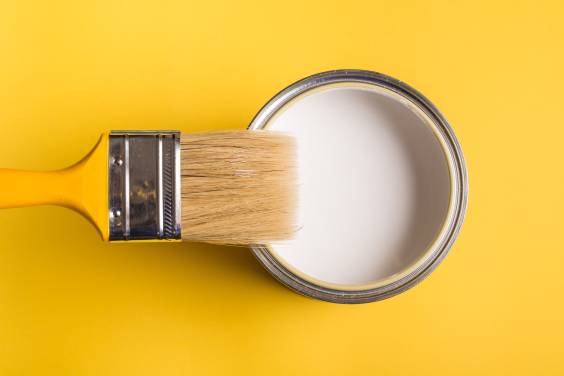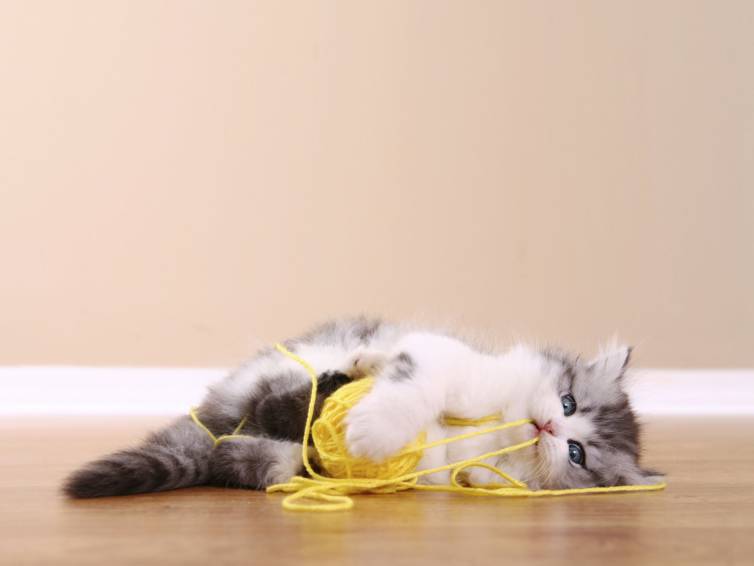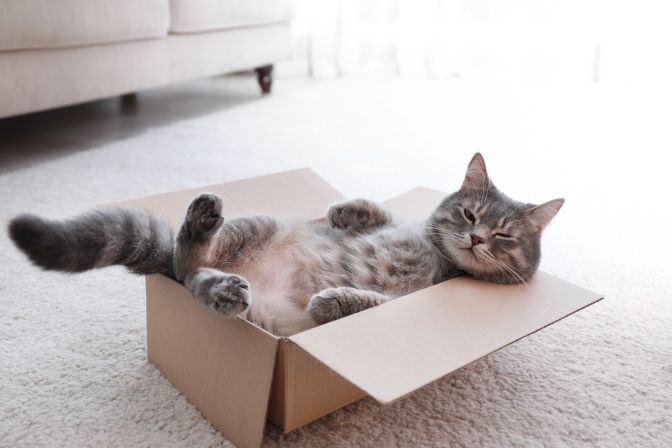Connect with a verified veterinarian in minutes. Licensed vets are available 24/7 to answer your questions. No need to worry about your furry family member.
Do you have a hobby that involves using acrylic paint? Maybe you paint on a canvas or fabric. Painting with acrylic paints is extremely popular! But if you have a cat and she eats some of the acrylic paint, what happens? Will the acrylic paint make her sick?
Has your cat eaten acrylic paint? Are you worried the acrylic paint will make your cat sick? If so, you’ve come to the right place. We understand it can be scary when your cat eats something like this.
We’ve put together some information about acrylic paint and whether it can make a cat sick. Let’s get started!
What is Acrylic Paint?
Acrylic paint is water-based paint, where acrylic is used as a binder while water is the carrier. The paint is water-soluble and is water-resistant when it’s dry. What’s more, the paint is environmentally friendly and quick-drying. And it doesn’t have a strong smell. Acrylic paints come in latex, enamel, and latex-enamel types.
Acrylic paints are used to paint houses and buildings; however, they’re also used for various hobbies, such as creative painting.
While acrylic paints are safe when used as directed, what happens if a cat eats acrylic paint? Will acrylic paint make your cat sick?
Acrylic Paints & Cats
Acrylic paint is usually safe and non-toxic for cats, even if they lick or eat small amounts. However, it can irritate the cat’s skin and mucus membranes but is not a toxin.
However, if a cat has eaten a large amount of acrylic paint, she can become sick.

Review symptoms, medications & behavior to keep your pets healthy with a Vet Online in just minutes.
Ask a Vet Live NowSymptoms of Acrylic Paint Ingestion in Cats
You may notice these symptoms if your cat has eaten acrylic paint:
- Vomiting
- Incoordination (trouble standing, walking)
- Diarrhea
- Tremors
- Lethargy
- Difficulty breathing
- Depression
- Excessive salivation
- Gastrointestinal distress
Even though the paint is usually not toxic, it can still make a cat sick if she eats it in large amounts. If your cat develops any of these symptoms, be sure to call the vet right away. This could be a life-threatening emergency.
Be sure to let the vet know about how much paint the cat has eaten. And tell the vet about what time this happened.
The good news is that most cats who receive prompt medical care will make a full recovery. So, if your kitty seems to like eating acrylic paint, be sure to keep the paint where your cat can’t access it. Then you’ll both be much happier and healthier!
Connect with a verified veterinarian in minutes. Licensed vets are available 24/7 to answer your questions. No need to worry about your furry family member.

Julie
Julie is a graduate of the University of North Carolina, Wilmington, where she studied Animal science. Though contrary to the opinion of her parents she was meant to study pharmacy, but she was in love with animals especially cats. Julie currently works in an animal research institute (NGO) in California and loves spending quality time with her little cat. She has the passion for making research about animals, how they survive, their way of life among others and publishes it. Julie is also happily married with two kids.
Review symptoms, medications & behavior to keep your pets healthy with a Vet Online in just minutes.
Ask a Vet Live Now




